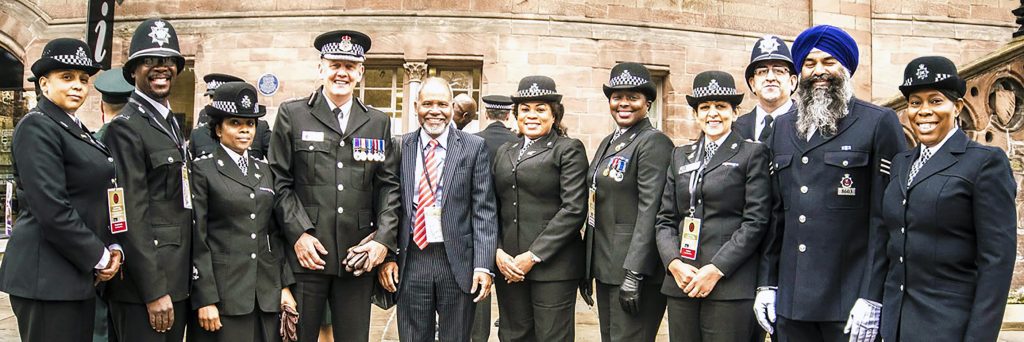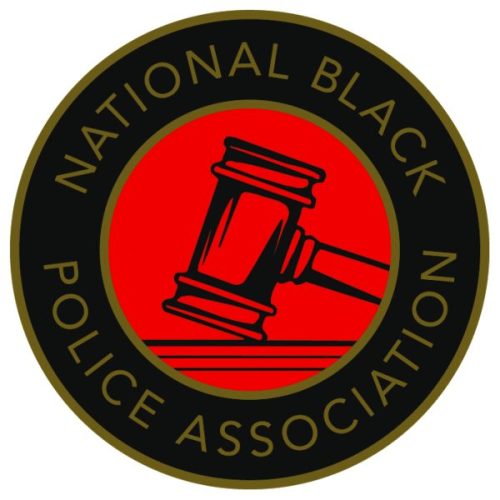The history of the National Black Police Association

In 1990, questions were raised with the Metropolitan Police regarding the alarming rate that Black staff were leaving the service. As a result an initiative between the Metropolitan Police and the socialist support unit at Turvey was held in Bristol, with aim of encouraging retention of experienced officers.
In 1991, the Metropolitan Police Service (MPS) organised the “Fairness, Community, and Justice” Conference in Bristol and mandated that all Black officers were to attend. The seminar brought together people from within the Police Service and professionals from other organisations who had an interest and concern for issues around equal opportunities. Sir John Smith, the Deputy Commissioner, told delegates that the main aim of the conference was to “inspire action”
At this seminar Black officers were confronted with the realisation that the issues they were facing in isolation were being replicated and repeated across the MPS. Examples of racism, victimisation and isolation were shared. Many of the offenders were serving police officers.
The Bristol Seminars were the creation of an informal network based on friendships made during the two days and the subsequent “Bristol Reunion” Social Functions. These seminars sowed the seeds for the formation of the Met BPA in 1994 and later the National Black Police Association (NBPA) in 1999.
With the help of the Metropolitan Black Police Association, the word quickly spread across the country, resulting in a flood of interest from Black members from other forces. This interest was not allowed to dissipate and individuals from provincial services came together with Metropolitan Police staff for a number of meetings in 1994-1995. The meetings were held at the then Home Office Specialist Support Unit in Turvey where the notion of a National BPA was nurtured and the transition from informal networking to strategic national communication network took place.
STRENGTH IN UNITY
In October 1996, with interest having grown across the country in the work of the BPA, a National Communication Network was formed. This network consisted of Black staff members spanning the length and breadth of the country. It was quickly realised that the only way forward was to form a national association, speaking with “ONE VOICE, STRENGTH IN UNITY”. The country was then divided into three regions with a co-ordinator for each region.
In November 1998, the National Black Police Association became a reality when an interim executive was elected to take the association to launch. The executive committee was comprised of 14 executive members from 12 Constabularies. The post holders included a Chairperson, Deputy Chairperson, General Secretary, Treasurer and Deputy Treasurer. In addition to the executive committee a NBPA coordinator was appointed.
It was to be chaired by Leroy Logan MBE of the MET Police – with the Vice Chair, Dr Ali Dizaei, also from the MET, and the General Secretary, Robyn Williams QPM from Nottinghamshire Police.
Home Secretary, the Rt Hon Jack Straw, gave his full support to the NBPA voicing it in many public forums and was instrumental in the negotiating the NBPA office which was previously situated within the Home Office building. In 1998 Members of the executive committee sat on the following groups: • Home Secretary’s group over seeing and auditing the recommendations from Macpherson. • Her Majesty’s Inspectorate of Constabularies Project review board on Accelerated Promotion Graduate Scheme. • Association of Chief Police Officers Race Hate Committee. • Association of Chief Police Officers Race and Community Relations. • IONANN Advisory Committee. • Action Equality. • Her Majesty’s Inspection team. In addition to participating in the above groups, members of the executive also delivered presentations to bodies such as Bramshill, Strategic Command Course, Probation Service, Community Race Relations Committee, and National Federation to name just a few.
In November 1999, it was launched at the International Conference Centre, Birmingham, with the mission statement; “The National Black Police Association seeks to improve the working environment of Black staff by protecting the rights of those employed within the Police Service and to enhance racial harmony and the quality of service to the Black community of the United Kingdom. Thereby assisting the Police Service in delivering a fair and equitable service to all sections of the community.”
The definition of “Black” does not refer to skin colour. The emphasis is on the common experience and determination of the people of African, African-Caribbean and Asian origin to oppose the effects of racism.
Summary provided by the South West and Wales Regional Black Police Associations

